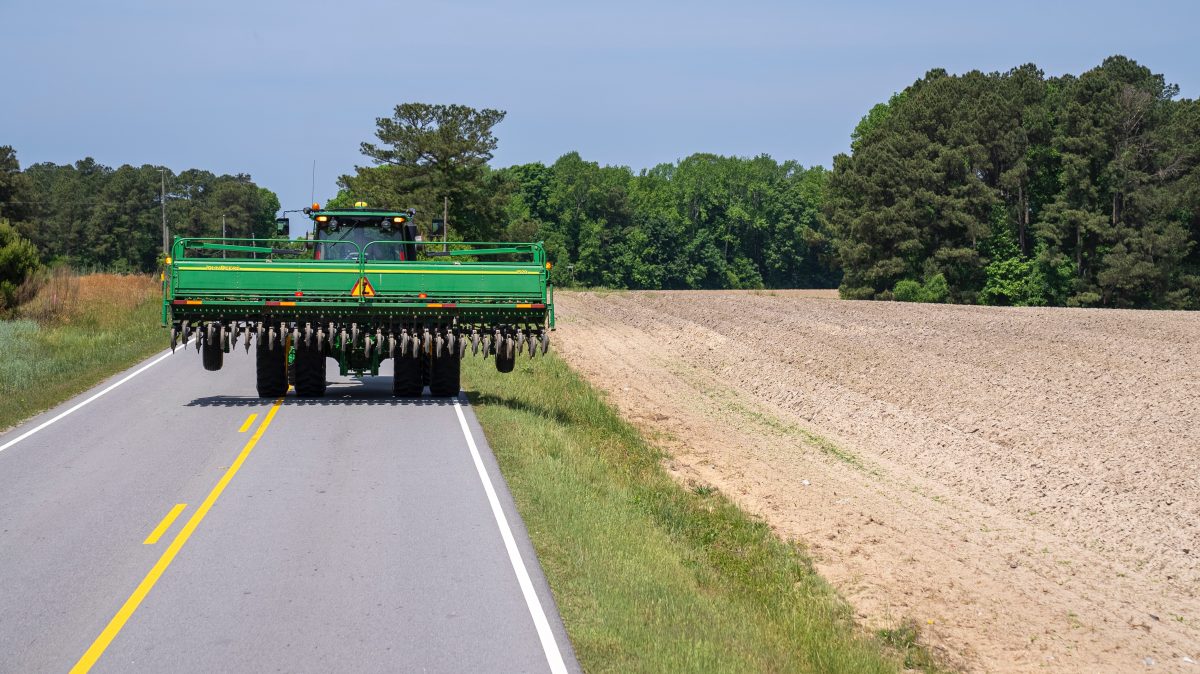Make Safety a Priority This Harvest
TOPICS
SafetyGuest Author
Special Contributor to FB.org

photo credit: Mark Stebnicki, North Carolina Farm Bureau
Guest Author
Special Contributor to FB.org
By John Schlageck
Keeping everyone safe while they live, play and work on farms can be challenging. It’s even more difficult during harvest season – a peak time for farm injuries.
Long hours, a flurry of activity, less-than-ideal weather conditions and work involving large machines make corn, milo and soybean harvest a potentially dangerous period.
Operator knowledge and attitude remain the key to a smooth, well-oiled fall harvest.
Fall harvest marks the pinnacle of a half-year’s effort to produce these crops. During harvest, farmers work long, hard hours. Fifteen-minute meal breaks are about the only real time off in days that often stretch to 10 hours or more.
People and machines are pushed to their limits.
While every machine – combine, truck, tractor, grain cart or auger – provides its own unique hazards, operator stress or error account for most harvest accidents. Years of safety features built into these machines are useless unless operators work safely. It’s also true that when human limitations are exceeded, accidents are bound to follow.
Carrying an extra passenger is also a safety concern. Children or young adults can fall from cabs. It’s instinct to hold onto something when jarred off balance. Some people have reached for a door handle, accidently hitting the latch and falling out.
Operator knowledge and attitude remain the key to a smooth, well-oiled fall harvest. A safe operator knows his or her skills, limitations and condition, both physical and emotional.
The safety-conscious operator knows each piece of equipment, its condition, capacities, limitations, hazards and safety equipment. Such an operator is constantly monitoring field and weather conditions.
It’s critical to train young people and go over safety precautions before harvest begins. Beyond the tasks associated with driving harvest equipment, recognizing potential hazards should be discussed.
Consider these safeguards:
- Securely fasten seat belts.
- Avoid ditches, embankments and holes whenever possible.
- Reduce speed when turning, crossing slopes and on questionable surfaces.
- Avoid slopes too steep for safe operation.
- Do not allow standing passengers – buddy seats may be a safer way.
- Be sure everyone is a safe distance away before moving.
- Operate combines, tractors, trucks and grain carts as smoothly as possible.
With winter looming comes the temptation to take chances, and short-cuts and extend working hours. Such behavior only adds to fatigue and high levels of stress and tension.
Remember, harvest will take its toll if you don’t take breaks. Eating balanced meals, even if you only take 15 minutes, is important. Stop the machine. Climb off and relax for a few minutes while you’re eating. Drink plenty of water, tea or other cold liquids during what can be hot, dry days. Get out of your machine for such breaks at least every hour.
John Schlageck is a leading commentator on agriculture and rural Kansas. Born and raised on a diversified farm in northwestern Kansas, his writing reflects a lifetime of experience, knowledge and passion. This column was originally published as a Kansas Farm Bureau Insight column.
Top Issues
VIEW ALL